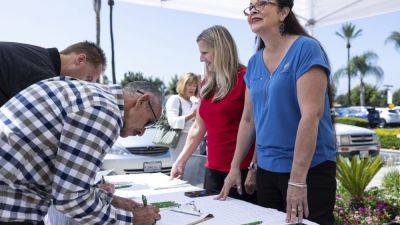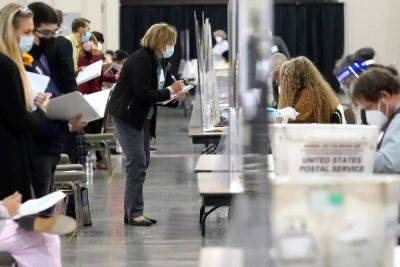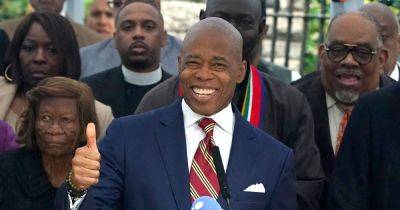What is ballot gathering? And what are the laws around this controversial practice?
Ballot gathering or ballot collecting is a practice in where a voter completes an absentee ballot, places it in a sealed, signed envelope and entrusts it to another person who then drops it off at a mail center or a designated ballot drop-off location. This practice is also sometimes known as “ballot harvesting,” but experts say that is a loaded term and prefer “ballot gathering” or “ballot collecting” instead.
Is ballot gathering legal?
According to the National Conference of State Legislatures, ballot gathering is legal in some form in 35 states where a person other than the voter is allowed to return a completed ballot on the voter’s behalf. However, the laws relating to ballot gathering vary significantly from state to state. Most states that allow ballot gathering place limits who can do that to individuals such as a family member, household member or caregiver.
Seventeen states allow a voter to designate someone other than family members or caregivers while 11 states limit how many ballots such an authorized person can return. In Colorado, for example, a designee can return only up to 10 ballots. In states such as California, there is no limit on how many ballots an authorized person can return. California places a condition that a person collecting ballots cannot be compensated. Other states such as Rhode Island or Wyoming do not specify who may or may not return the ballot on a voter’s behalf. These variations leave a lot of room for interpretation.
Alabama is the only state where only the voter is permitted to return the ballot unless there is an emergency situation. According to the Voting Rights Lab, which also tracks ballot gathering laws, the Americans with Disabilities Act requires all states to allow voters







